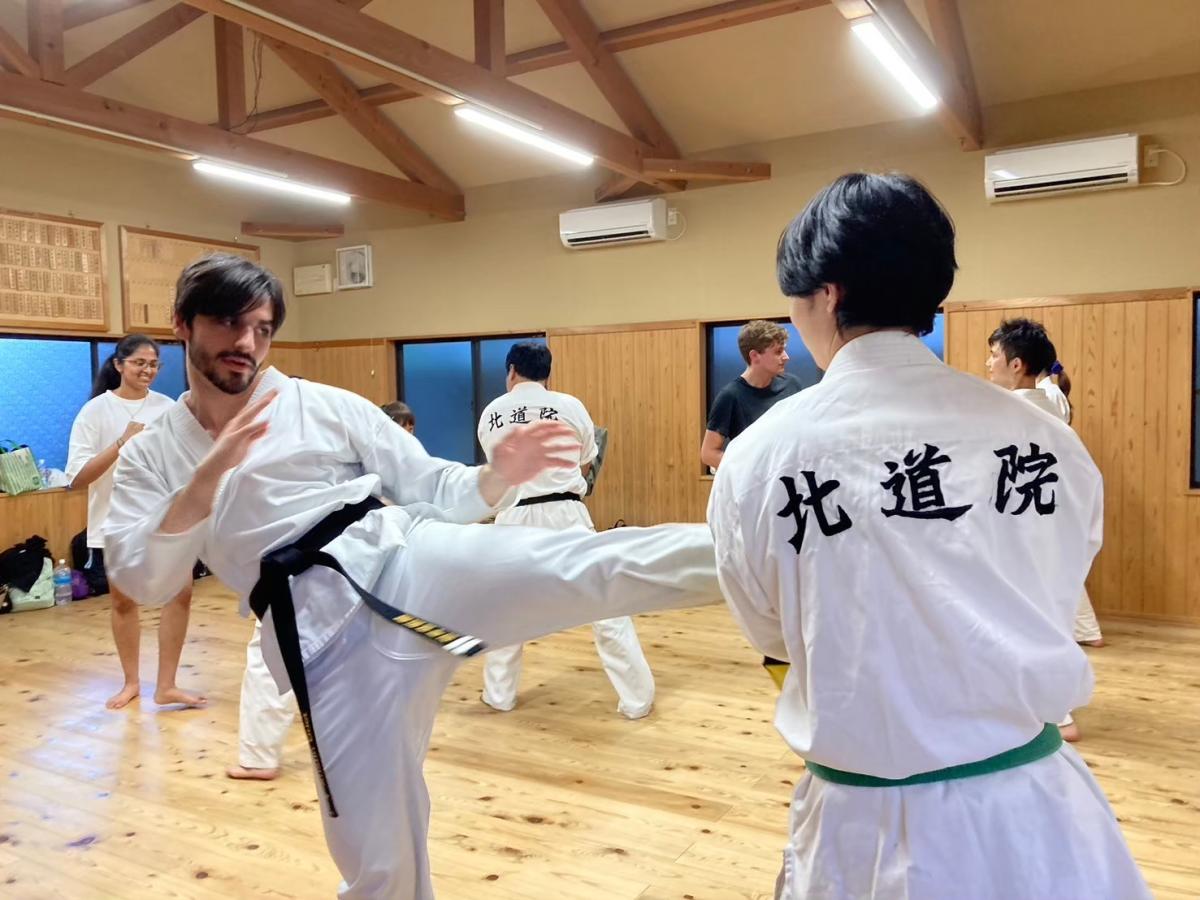What to bring
NOTE: Program participants will be given a pre-departure guide that includes a packing checklist at the pre-departure orientation. Please see the Student Info page for the date, time and location.
NOTE: Program participants will be given a pre-departure guide that includes a packing checklist at the pre-departure orientation. Please see the Student Info page for the date, time and location.



If you don't have a passport yet, apply for yours today! You MUST have a valid passport in order to travel internationally (with an expiration date no earlier than 6 months after your scheduled return date). If you are a U.S. citizen, you will not need a visa in order to enter the country for this program. You will be automatically granted a tourist visa for up to 3 months when you enter Japan. Also, we advise to bring a photocopy of your passport.
The weather in Kyoto in June is quite humid due to the rainy season called Tsuyu ( 梅雨 plum rain) that usually starts in the middle of June and lasts until the middle of July. The average temperature is 72.9°F. Bring light clothing but also a long-sleeved top to put on in air-conditioned facilities. Be sure to pack your rain gear! You will definitely need an umbrella but the rain is not generally summer thunderstorms like we get in New Orleans. It is usually a nice rain with low, gray skies. The dress for all of our events will be casual, except for the opening and closing ceremonies. Although coat and tie are not required for gentlemen, slacks and nice shirts are recommended. Ladies should plan to wear a dressy outfit.
Always pack a change of clothes and immediate essentials such as prescription drugs, minimal toiletries and contact supplies in your carry-on bag. You should pack enough of any medications that you take regularly to last for the duration of your stay, and bring them in their prescription containers. If it is medication that you rely upon for survival (i.e., insulin), bring extra with you.
The currency of Japan is called Yen. $1.00 is equal to about 110 Japanese Yen. The best method for money exchange is through ATM machines. There are certain places in Japan that have international ATMs. These typically offer the best rate of exchange and can sometimes be accessed twenty-four hours a day. Apply for a debit card now. It is important that your debit card has a Visa or Mastercard logo, or the Cirrus or Pulse logo or combination of both on the reverse of the card. These are the international networks for ATM machines. If your card has Plus it may or may not work overseas. We advise you to contact your bank regarding withdrawals or credit card usage from overseas.
There is a shared laundry space in both housing facilities. Japanese clothes dryers are usually not as powerful as the ones in the U.S., so bring lightweight clothing.
Please note: the laundry at the guest house comes at a cost. Use of the washer is 200 yen and the dryer is 100 yen.
The voltage in Japan is 100 Volts, which is different from the U.S. (110V). Japanese electrical plugs have only two, non-polarized pins, and as such, are able to fit into North American outlets. Japanese power outlets are identical to ungrounded (2-pin) North American outlets. Some North American equipment will work fine in Japan without adapter and vice versa, however, some sensitive equipment may not work properly or even get damaged. If you bring a device with you that has three prongs, bring an adapter and it should be fine. Especially for laptop computers, which generally include electric converter boxes.



Both housing facility provides sheets, blankets, and one pillow per bed. You should bring your own large bath towel or you can purchase one in Japan. Also bring a pillow if you want more than one, or if you have a favorite.
It will be difficult for you to use the Japanese computers on campus, so we suggest that you bring your own. You will have wifi internet access in your room. Internet access is included in the price of your room. Some students in the past have brought rental pocket wifi for internet on-the-go. There will also be wireless internet access in some student areas on campus. Please check any computer or printer you bring for voltage compatibility (see Electrical Items).
Most medications are allowed in Japan, except for some medications classified as "stimulants," which are strictly forbidden. Also, if you need to bring with you more than a one-month supply of a prescription medication, or if you must bring restricted (narcotics of psychotropics) or injectable medications into Japan (such as insulin or an Epi-pen), you may have to apply for what is called a "Yakkan Shoumei." For more information, please see the web site of the Japanese Ministry of Health, Labor and Welfare.
The University of New Orleans provides Health Insurance for all participants on our Study Abroad programs.
Individual Course Requirements
Please see the Course Listings for listings of which classes have syllabi already online.
The UNO-Japan: Study at Doshisha University Program
University of New Orleans
2000 Lakeshore Drive
International Center, Room 124
New Orleans, LA 70148
E-mail: UNOJapan@uno.edu
For emergencies contact: Jennifer Torres
Phone: (504) 280-1218
Email: jgtorres@uno.edu